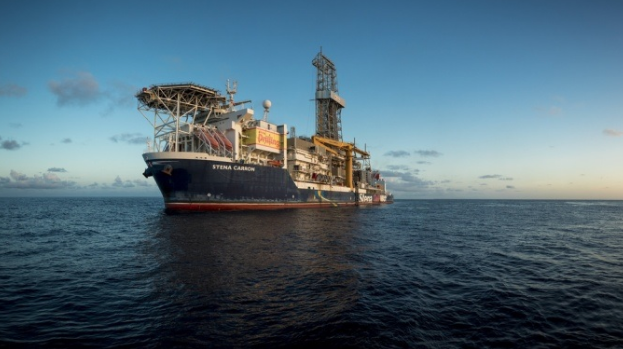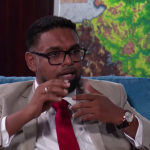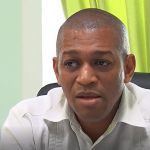
By Ravin Singh
Three of the country’s top spokespersons on the emerging oil and gas sector, clashed yesterday on the Al Jazeera TV Network over Guyana’s preparedness ahead of production, which is expected to commence in 2020.
Former Presidential Advisor on Oil and Gas, Jan Mangal, Attorney-at-Law Christopher Ram and Director of Public Information, Imran Khan all appeared on yesterday’s edition of The Stream – an Al Jazeera Production, which examined Guyana’s recent oil discovery and the possibilities associated with it.
ExxonMobil, the company currently drilling for oil in Guyana made its first discovery in 2015.
Since then, the company has found eight wells containing commercial quantities of oil deposits. Their estimate jumped from 3.4B to over 4B oil equivalent barrels just last week.
In light of this, Mangal was particularly critical of the government’s efforts in recruiting experts to contribute to the management and regulation process ahead of production.
“There is zero oil and gas experts, people with 15-30+ years’ experience on the ground working full time in decision making in the government. Unfortunately, there seems to be a huge reluctance for hiring the required capacity and that unfortunate” the former oil and gas advisor said.
Mangal’s contract with the government ended earlier this year and has not been renewed.
He offered that at present, Guyana “needs people on the ground working there on a long term basis”.
But according to government’s spokesperson, Imran Khan, these criticisms have surfaced because the administration has been cautious in how it handles the sector.
“We’ve very cautious and that has brought some criticisms with regard to the pace at which we’re implementing legislation and putting structures and framework in place. But we want to ensure we do it correctly; we do it right,” he told hosts Femi Oke and Malika Bilal.
Ram then interjected, rhetorically asking Khan if he realizes that production is scheduled to commence in less than two years.
He then shared his views of the country’s deficit in relation to preparedness.
“At present, we have no policy framework, no legislative framework, [and] no institutional framework; we have no policy in relation to consumption and saving; we have a serious physical and social deficit” Ram contended.

However, the Director of Public Information reiterated a position previously articulated by the government, that it is ensuring that best advice from global experts is solicited, in an effort to ensure that this transformational opportunity is not squandered.
“We’ve had a difficult time since independence. We hope that this transformational oil find will correct some of the issues and challenges that we’ve had in the past” Khan added.
Listening all the while was Lisa Sachs from the Columbia Centre on Sustainable Investment, who was also part of the panel.
She offered that there are two distinct components to issue of oil and gas in Guyana. The first, she said, is getting the skills and being able to manage the sector and negotiate with the international players, which she described as an “enormous task”.
“Much more planning should be done here” Sachs urged.
On the other hand, she noted that what the country needs to be focusing on, is putting in place, a long-term development strategy.
She said that critical questions need to be answered, including: “how does this oil boom fit into the long term development plans and needs of Guyana? How is this going to help build health systems, energy systems, [and] infrastructure?”
But Ram, who was adamant that efforts need to be intensified to manage and regulate the sector, questioned that: “We cannot only think about using the money we get from oil for future generations, what about the current generation?”
WATCH:











You must be logged in to post a comment Login